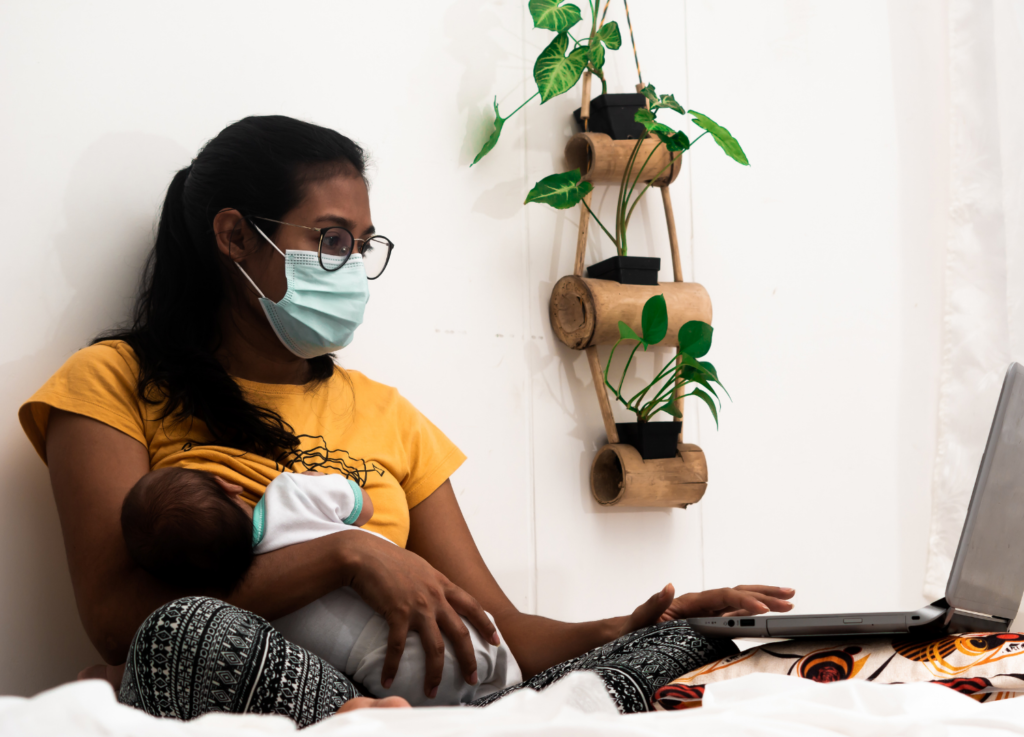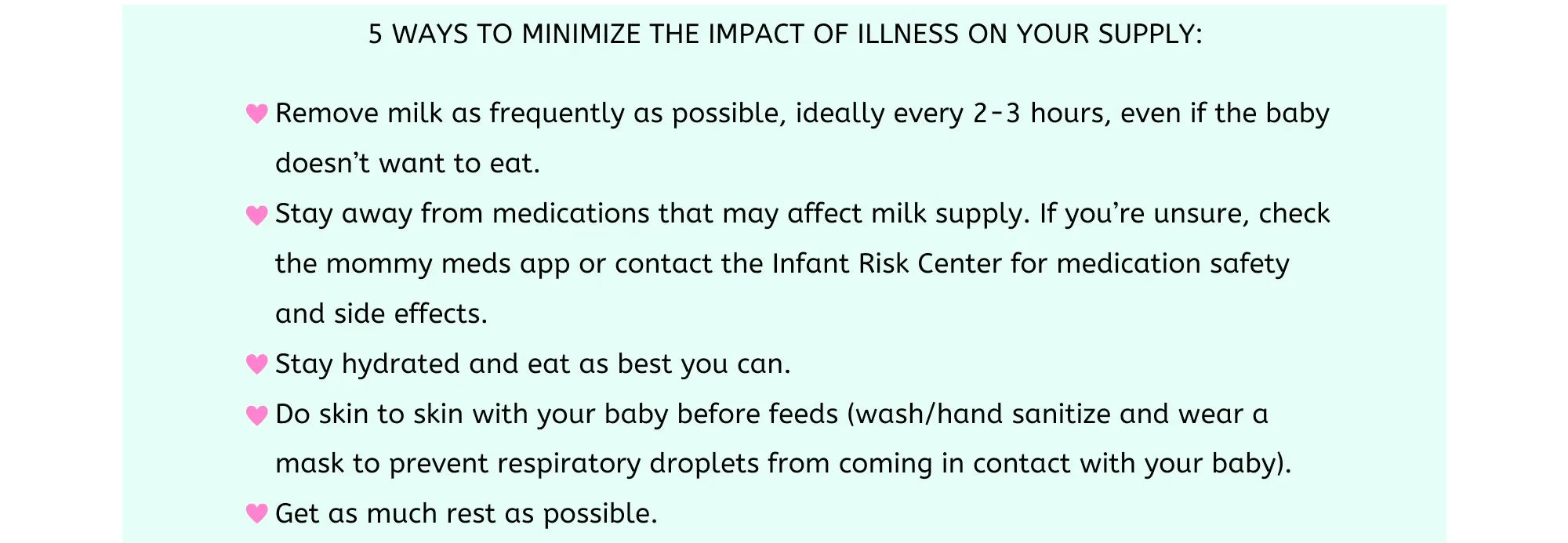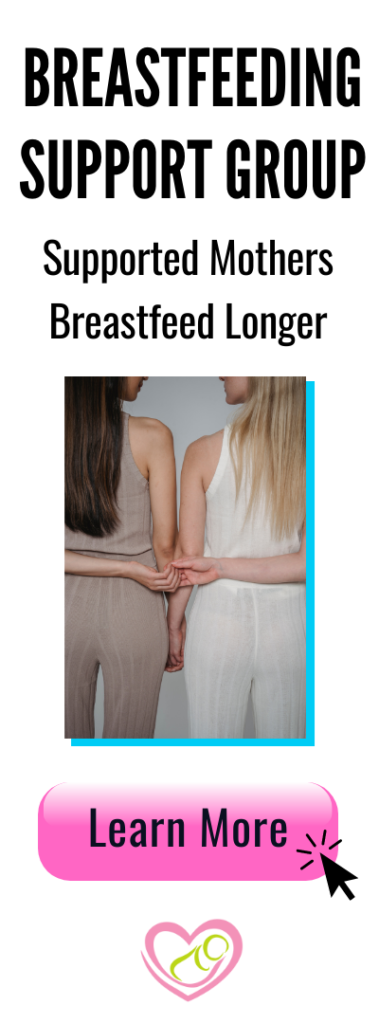Breastfeeding with COVID-19: What you need to know
December 17, 2021 2024-06-20 16:36Breastfeeding with COVID-19: What you need to know
Breastfeeding with COVID-19: What you need to know

“I tested positive for COVID-19, should I continue breastfeeding?”
“Should I start breastfeeding if I’m positive when I deliver?”
“Can I transmit the virus through my breast milk?”
With so much uncertainty and quickly changing information surrounding this situation, it’s no surprise that we get these questions every day! We will continue to update this page as new information becomes available. Here’s what we know so far:
It is vital to not disrupt breastfeeding if you do test positive for COVID-19.
While it is not yet clear if breast milk is protective against COVID-19 specifically, breastfed babies are generally less likely to have severe respiratory symptoms when they get sick. Your milk provides the ideal nutrition for your baby, plus environmentally specific antibodies to protect your baby and help them fight off viruses and bacteria.
The World Health Organization (WHO), the Centers for Disease Control and Prevention (CDC), and American Academy of Pediatrics (AAP) all recommend beginning and continuing to breastfeed if you are suspected or confirmed to have COVID-19. Your child has already been in close contact with the virus; therefore, your child will benefit substantially from direct breastfeeding.
When anyone in your household has been exposed to COVID-19, your child has been exposed, and the benefits of breastfeeding significantly outweigh the potential risks for transmission.
“In infants the risk of COVID-19 infection is low, while
the consequences of not breastfeeding and separation
between mother and child can be significant.”
-The World Health Organization
Recommended precautions:
If you are suspected or confirmed to have COVID-19, here are some recommended precautions to put into practice while providing breast milk for your baby:
- Before touching your child, your breasts or pumping supplies, wash your hands for a minimum of 20 seconds, using soap and water. If soap and water are not available, use hand sanitizer with at least 60% alcohol.
- Wear a mask when you are less than 6 feet from your child, including when feeding and/or expressing breast milk.
- Clean and sanitize breast pumps and accessories, and wash your hands.
How to protect your milk supply if you are sick:
The virus itself is unlikely to impact your milk supply. The related symptoms, however, such as fatigue, diarrhea, nausea, decreased appetite, etc., definitely can cause your supply to take a hit. Maintaining hydration and keeping up your typical routine may prove difficult, and the physical and mental stress of being ill can throw a wrench into your breastfeeding efforts. The good news is that the supply loss is temporary, and you can work to get your supply back once you’re well.

Depending on the severity of your symptoms, doing some or all of these things may not be possible, or may require you to lean heavily on your support system. Just do your best, focus on getting well, and remember that there are ways to get your supply back after you’re feeling better.
We hope this information helps you navigate this difficult time. Especially during the pandemic, it is critical to ensure that mothers who are breastfeeding or who desire to breastfeed have access to support.
We will continue to monitor community levels as well as the recommendations from regulatory agencies, and adjust our policies as necessary to protect both our families and yours.
Sources:
Center for Disease Control (CDC): Pregnancy & Breastfeeding- Information about Coronavirus Disease 2019
World Health Organization: Breastfeeding and COVID-19
La Leche League: Continuing to Nurse Your Baby Through Coronavirus (2019-nCoV; COVID-19) and Other Respiratory Infections
American Academy of Pediatrics: https://www.healthychildren.org/English/health-issues/conditions/COVID-19/Pages/Breastfeeding-During-COVID-19.aspx
Hand Sanitizer Alert: https://www.ncbi.nlm.nih.gov/pmc/articles/PMC3291447/
***The information provided on our website is intended solely for general educational and informational purposes only. It is neither intended nor implied to be a substitute for professional medical advice. Always seek the advice of your physician for any questions you may have regarding your or your child’s medical condition. Never disregard professional medical advice or delay in seeking it because of something you have received in this information.***
Search
You may also like
- Is It Safe To Breastfeed Your Baby While Sick?
- 5 Reasons Elderberry May Not Be Safe While Breastfeeding
- How To Use Electrolytes For Proper Hydration When Breastfeeding
- Alcohol And Breastfeeding- Is It Safe For Baby?
- Persevere And You Will Conquer: Josie’s Breastfeeding Journey
- New Military Policies For Breastfeeding



